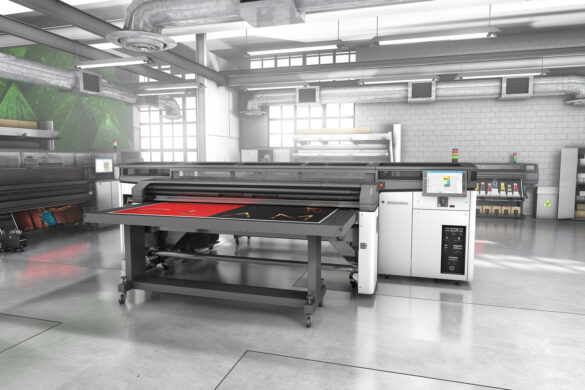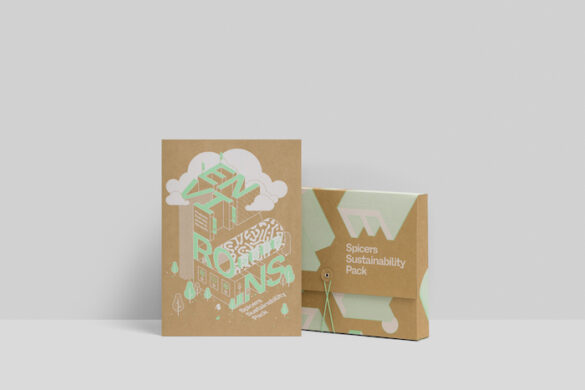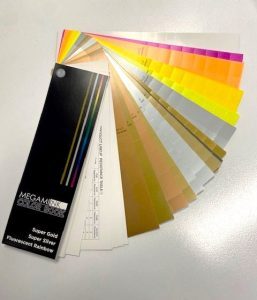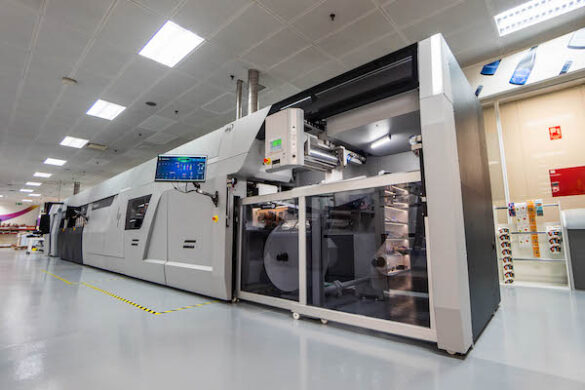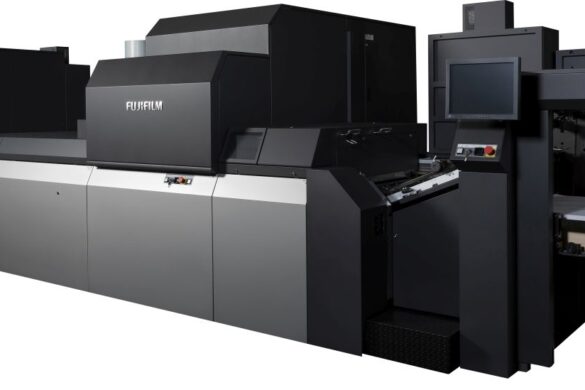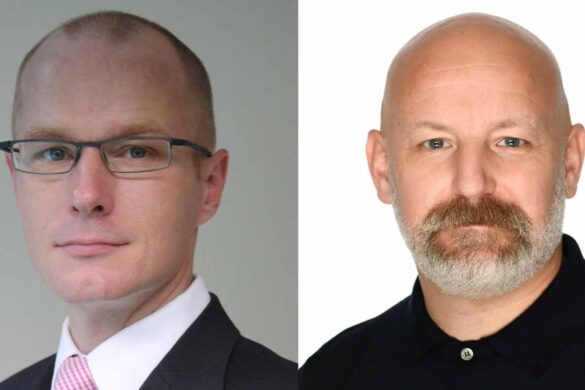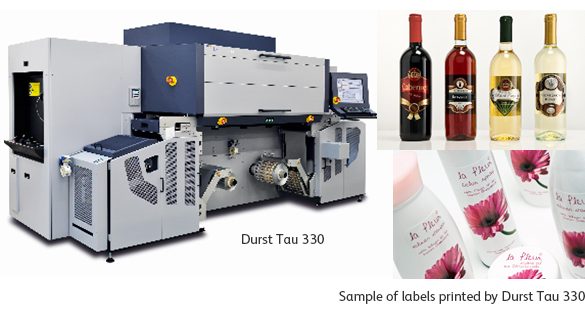When Jim Kellock started his label manufacturing business back in the early 1980s, producing small format single-colour identity labels for the then bustling hosiery industry in Leicester, he could scarcely have foreseen how the company would grow to become one of the UK’s leading converters of highly embellished bottle labels for the drinks trade.
When Jim’s son Stuart took over in 2007, he knew the company had to diversify if it was to succeed and grow. “There was no point in being able to offer the same as the next label converter because that just creates a downward price spiral. We decided that volume was not the way to go, but specialisation in high-end labels with added value appeared to offer better opportunities at a time when it was less common than it is now.”
Today, under the third-generation management of Helena Kellock, who took over as MD from her father in February 2022, Label Apeel thrives in a spacious and modern production facility in Thurmaston, a suburb of Leicester, and employs an experienced staff of 45. Label production is carried out on two HP toner presses and two MPS flexo lines, a five-colour, and an eight-colour. With the market for high-quality labels now more competitive than ever, the company decided to investigate what automation could contribute to improving production efficiency. “We wanted to ensure we were maximising our capability, which included reducing waste, especially on the expensive substrates we use, and improving the efficiency of the technology we have here by saving time between roll changes,” she commented.
This led to a conversation with Chris Chappel, UK Sales Manager of Martin Automatic, the global manufacturer of unwind/splice and rewind technology for web presses, and the installation of the American company’s MBS butt splicers on each of the EF330 MPS flexo presses. Capable of handling rolls of various materials from film to board on rolls up to 660 mm wide and 1270 mm in diameter, and at speeds up to 300 m/min, the MBS is one of Martin’s most popular machines in the market with installations around the world.
The effect was dramatic, according to Helena Kellock: “There has been an immediate clear and linear ROI, with a significant reduction in expensive waste and improved efficiency in roll handling and changing for the press operators.”
Long-serving Production Manager Ian Watson added: “Because the Martins allow us to run to within a few metres of the end of each roll, I estimate we save around 90 metres of substrate per roll change, which over the course of a shift will total about 640 metres of expensive material. If you add in the fact that it takes between five and ten minutes to change a roll manually, depending on how much energy you have, we’re looking at around 80 – 90 minutes more production time per shift with automated non-stop changes.”
With the recruitment of skilled staff seemingly an ongoing problem within the industry, more automation would appear to offer an alternative solution. Helena Kellock said: “Employing automation strategically, as we have with the butt splicer, allows us to engage new recruits with the technical and skilled aspects of being a printer. This automation allows the focus to be solely on maintaining the highest print quality for our customers. Installing the Martin technology has been an eye-opener and has given us a very clear pointer to the way ahead for Label Apeel.”
In addition to improved production efficiency, the Martin technology has fitted in well with the company’s commitment to sustainability. Critical of how some companies ‘greenwash’ their customers with unqualified claims, Helena Kellock stresses the importance of transparency on the matter. “We’re not perfect, but we are working hard at getting better. We’re FSC certified, have a ‘zero to landfill’ policy, run a fleet of electric vehicles, have solar panels on the factory roof, and have reduced our gas usage to zero.” All of which are appreciated by Label Apeel’s customers, as its testimonials verify.
Caption:
(Left to right) Label Apeel’s Helena and Stuart Kellock, with Ian Watson and Martin Automatic’s Chris Chappel next to one of the company’s MBS unwind-splicers



